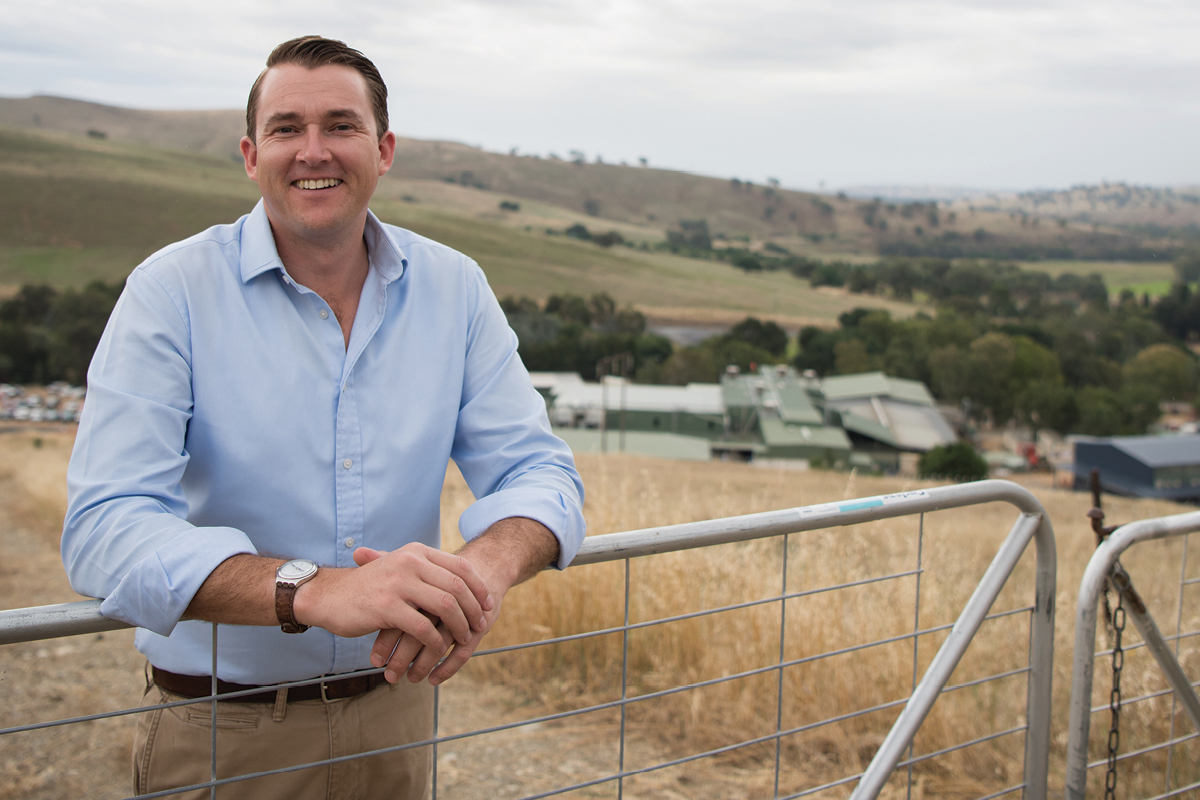Gundagai Meat Processors (GMP) CEO Will Barton comes from a long line of butchers. His grandfather, Fred Barton, opened Barton’s Butchery in the New South Wales country town of Gundagai in 1919 after completing his butcher’s apprenticeship.
Over time, Fred passed on his knowledge to his sons; Will’s father, Bill, and uncle, Tony. In 1974, the duo built an abattoir on the outer edge of South Gundagai, leading to the creation of GMP.
Will was appointed CEO in 2014 and has continued to steer the family business to new heights. “When I came to the business, the board had set two focus areas,” he tells The CEO Magazine.
Securing long-term business partnerships
“One was to secure a long-term processing contract with a major Australian supermarket chain we’d done business with for more than 35 years. I’m pleased to say that we secured the contract and it continues to be an important partnership for our business today and will be into the future. The other was to increase the scale of operations and develop export markets.”
GMP specialises in lamb processing, accounting for 20% of lamb production in New South Wales. It operates exclusively on a fee-for-service basis.
“That means we don’t buy livestock and we don’t sell meat,” Will explains. “We’re in the business of service delivery, and the success of our business hinges on our ability to deliver exceptional service every time.”
There are several advantages of working in a family business, Will says. “The first is the agility it brings. With our family structure, there’s a level of trust in decision making and understanding our direction, which has allowed the business to adapt rapidly to change.”
“We’re always looking for new partnerships and opportunities to participate in industry trials. And typically, we’re early adopters of new technology.”
Investing in relationships
“Our structure affords us that competitive advantage over larger corporates that can take a bit of time to build the same momentum and implement similar changes.”
Having operated in Gundagai for nearly 100 years, GMP has built strong loyalty among the town’s residents. “Gundagai is our home, and has been for many years,” Will says.
We’ve got families, in some cases three generations of families, working for us.
“Our culture is incredibly important in defining who we are and our reputation in the community in which we operate. We’ve got families, in some cases three generations of families, working for us.”
“They feel comfortable knowing who they’re working for given that we’re also invested in the community.”
Relationships vs higher profits
Further, Will knows how important strategic relationships are for the business. “Our business model is built around partnering with clients and suppliers that share our values and have the same long-term view of business that we do.“
One of the reasons we do that is because historically we have a more conservative view of business, one that really hinges on building trust and doing business over a long period.
Perhaps it’s at the expense of higher profits at times because it’s less opportunistic in its approach.
“If you look back at the start of most family businesses, and it’s certainly true of ours, they’ve had to fight tooth and nail to keep the businesses running.”
“After you get through 15 or 20 years of trading, where you have moments when you don’t know if you’re going to be there the next day, that shapes your mindset to focus hard on building long-term relationships with people you can trust who will deliver consistency.”
40 years of foresight
“So our focus has now become, ‘What are we going to do to be here for the next 40 years?’”
One of GMP’s biggest milestones during Will’s tenure has been the announcement of a A$30 million expansion in conjunction with design and construction company Wiley & Co.
This is set to double the size of the business in the next 12 to 18 months and increase its staff from 180 to 255.
Our focus has now become, ‘What are we going to do to be here for the next 40 years?’
“Wiley has been outstanding in ensuring that we’ve remained operational during that expansion and construction,” Will says.
“They’ve been conducting full-time onsite project management to make sure we maintain our production objectives every day and that the project is on track.”
“We’re now a world-class facility, and the expansion positions us well for onboarding new clients. For our community, it means 75 new jobs.”
There’s been a boost of A$3 million to our local spending during construction, and the ongoing stimulus to the local economy is estimated to be more than A$150 million a year.”



